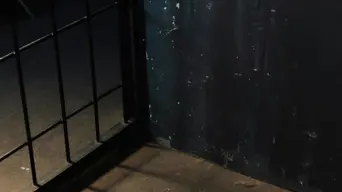Emergency measures activated to ease English prisons' overcrowding
The decision to invoke 'Operation Early Dawn', which allows defendants to be held in police cells and not summoned to court until space in prison becomes available, follows hundreds of convictions for participating in the disorder.

Picture: Pexels
LONDON - The UK government activated emergency measures Monday to ease overcrowding in prisons in northern England, as growing numbers of people are convicted for involvement in the riots seen earlier this month.
The decision to invoke "Operation Early Dawn", which allows defendants to be held in police cells and not summoned to court until space in prison becomes available, follows hundreds of convictions for participating in the disorder.
That has exacerbated a capacity crisis within the prison system in England and Wales, with the new Labour government warning last month it was on the brink of "collapse" due to overcrowding.
England and Wales have the highest per capita prison population in Western Europe. The government has already announced plans to release thousands of prisoners early from September to deal with the crisis.
Operation Early Dawn will see officials across northern England make an operational assessment each morning and throughout the day over which defendants can attend court, depending on prison capacity.
"We inherited a justice system in crisis and exposed to shocks," prisons minister James Timpson said in a statement.
"As a result, we have been forced into making difficult but necessary decisions to keep it operating."
The justice ministry said the move will help to "manage the prison capacity pressure felt in the short-term in a small number of regions".
Police have indicated that this will not impact officers' ability to make arrests, the ministry added, insisting "anyone who poses a risk to the public will not be bailed".
However, representatives for workers in prisons and the court system warned that the policy would invariably impact policing and other areas of criminal justice.
"It's justice delayed at the moment because we're not clogging up police cells, so they might have to delay some of their operations," Prison Officers' Association chair Mark Fairhurst told the BBC.
Meanwhile, Tom Franklin, of the Magistrates' Association, said: "There will be a delay in some people who have been charged coming to court because the Prison Service can't guarantee... there would be a place for them".
The riots that recently swept England and Northern Ireland followed the stabbing to death of three girls at a dance class in Southport, northwest England.
Officials have blamed far-right agitators for fuelling the disturbances, which saw police attacked and mosques and hotels used to house asylum seekers also targeted.